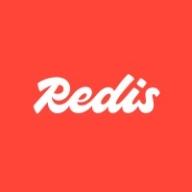

Find out what your peers are saying about Microsoft, Amazon Web Services (AWS), MongoDB and others in Database as a Service (DBaaS).
| Product | Market Share (%) |
|---|---|
| Couchbase Capella | 1.4% |
| Amazon RDS | 13.5% |
| MongoDB Atlas | 12.3% |
| Other | 72.8% |
| Product | Market Share (%) |
|---|---|
| Redis | 22.6% |
| Amazon ElastiCache | 18.1% |
| Google Cloud Memorystore | 14.1% |
| Other | 45.199999999999996% |

| Company Size | Count |
|---|---|
| Small Business | 11 |
| Midsize Enterprise | 3 |
| Large Enterprise | 9 |
Couchbase Capella is a fully managed NoSQL DBaaS designed for optimal cloud-native performance. It integrates high-speed and flexible JSON applications with real-time analytics, supporting billion-scale vector search.
This platform is tailored for cloud environments, offering enhanced operational efficiency. It supports trusted mobile NoSQL for always-on apps and real-time JSON-native analytics without ETL processes. Couchbase Capella is unique in managing the complete data lifecycle for RAG and agentic systems, providing contextual memory and response validation, facilitating quick and cost-effective development of AI-driven applications.
What are the standout features of Couchbase Capella?In healthcare, Couchbase Capella aids in managing vast amounts of patient data with real-time analytics, ensuring fast application performance for critical decision-making. In retail, it enhances customer experiences through personalized recommendations and dynamic inventory management, while in finance, it supports secure, agile processing of transactions and fraud detection.
Redis offers high-speed, in-memory storage, renowned for real-time performance. It supports quick data retrieval and is used commonly in applications like analytics and gaming.
Renowned for real-time performance, Redis delivers high-speed in-memory storage, making it a favorite for applications needing quick data retrieval. Its diverse data structures and caching capabilities support a broad array of use cases, including analytics and gaming. Redis ensures robust scalability with master-slave replication and clustering, while its publish/subscribe pattern renders it reliable for event-driven applications. The solution integrates smoothly with existing systems, minimizing performance tuning needs. Although documentation on scalability and security could be improved, Redis remains cost-effective and stable, commonly utilized in cloud environments. Enhancing integration with cloud services like AWS and Google Cloud and refining GUI may improve usability.
What are the key features of Redis?Redis finds application across industries for tasks like caching to improve application performance and speed, minimizing database load. It enables real-time processing for session storage, push notifications, and analytics. As a messaging platform, Redis handles high traffic and supports replication and clustering for cross-platform scalability.
We monitor all Database as a Service (DBaaS) reviews to prevent fraudulent reviews and keep review quality high. We do not post reviews by company employees or direct competitors. We validate each review for authenticity via cross-reference with LinkedIn, and personal follow-up with the reviewer when necessary.